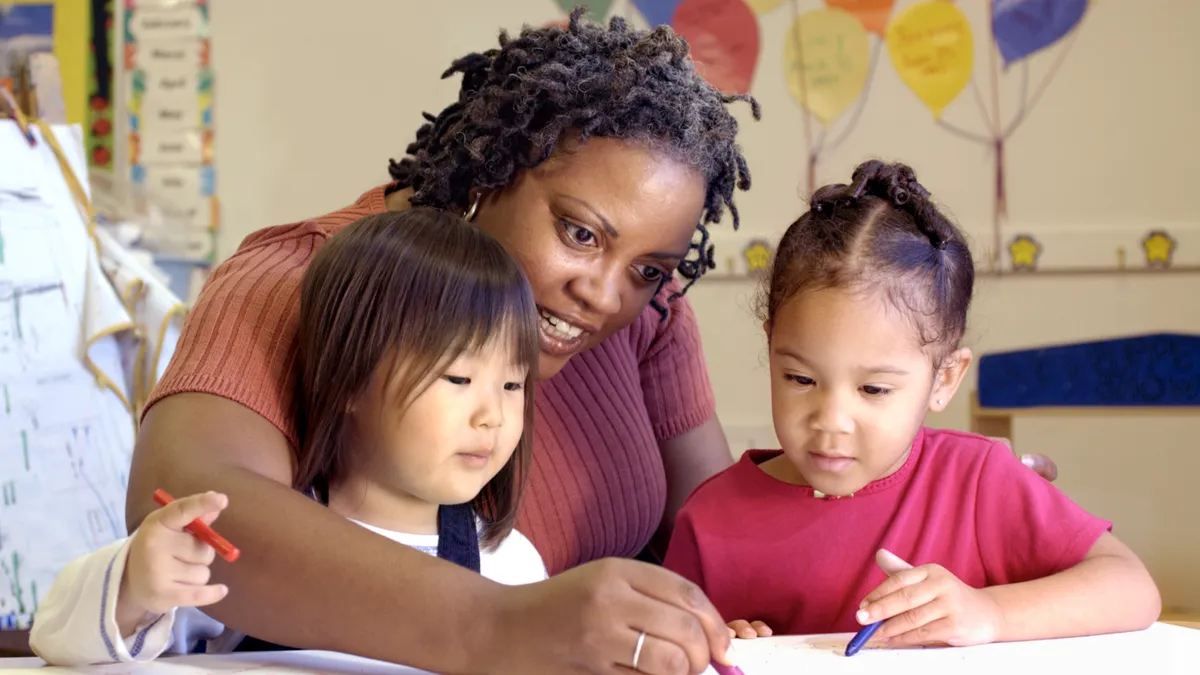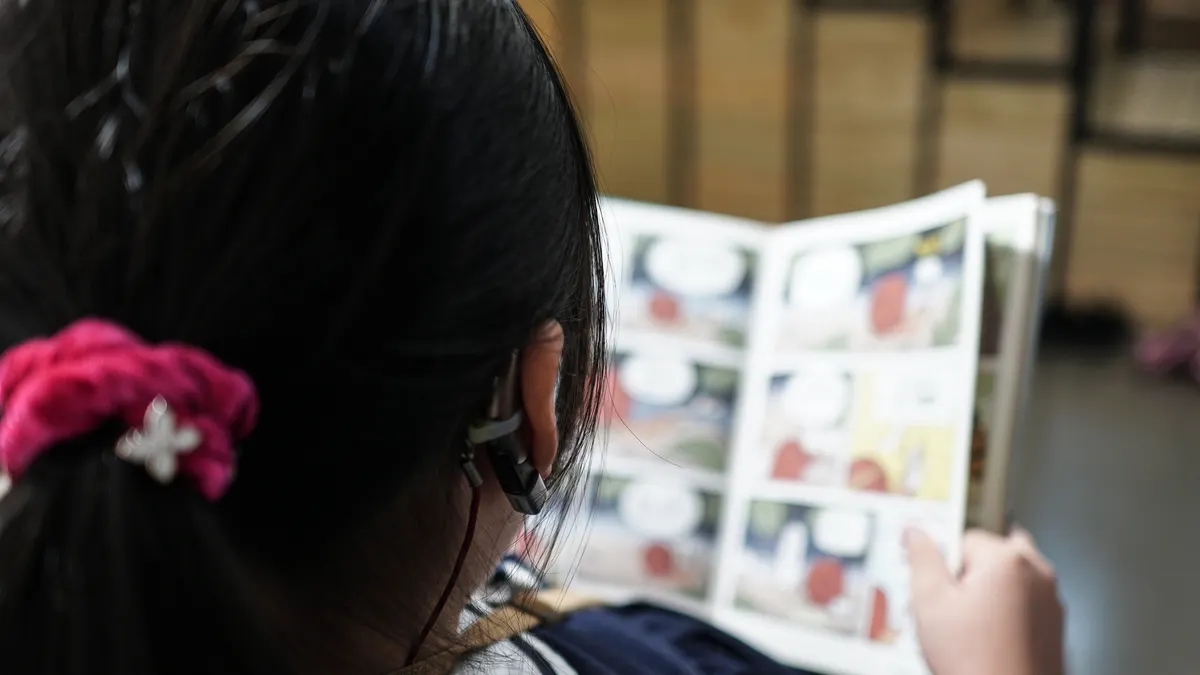A two-year-old grant program launched to support a more inclusive, equitable and sustainable early learning workforce is expected to have positive short- and long-term impacts on tens of thousands of early educators, according to a report from the Trust for Learning.
Over the past few years, the Supporting Equitable Educator Development Fund, or SEED, has provided $420,000 in grants to nine partners. Through the grants, those groups reached educators in different ways, including support for training programs or incorporating anti-racism practices into development programs.
All grantees centered on priority areas of reducing anti-bias practices, expanding avenues for degrees and credentials, and eliminating barriers to early educator participation.
"I'm hoping that we can use this as a time of change," said Cathrine Floyd, an early childhood partnerships manager at the Trust for Learning. The Trust is a nonprofit that wants to expand ideal learning environments in early education.
"I think this is a good opportunity to really help people understand. Because of the child care crisis during COVID, I think more and more people realize if child care stops, America stops," Floyd said.
Removing barriers to access
Due to years of underinvestment in early education, the field is in crisis as teachers leave the profession or are under stress, the report said.
Nearly half of early childhood educators are experiencing burnout and stress, and 20% said they were considering leaving the field, according to a survey by Teaching Strategies published in October.
The pandemic has created even more strain on the system. A recent report by National Institute for Early Education Research found Head Start staffing turnover at an all-time high, and in some states, more than 30% of staff having left during the 2021-22 program year.
Additionally, the early learning teaching workforce historically has lacked diversity. Although the field draws a large population of women of color, they tend to work as assistant teachers because of barriers to education and training, said Floyd.
"One important thing is because children learn by interaction and relationship, we want to make sure that their relationships also are reflective of who they are as a community, who they are as a family," Floyd said.
The Trust for Learning provided one-time SEED Fund grants of $25,000-$50,000 to each of the nine partners. The funds ultimately supported 50 teachers through individual scholarships, 100 teachers through coaching and professional development, and more than 40,000 educators through a national educator preparation program, among others. The grants went to local, state and national-focused organizations.
For instance, grantee HighScope, a national nonprofit that supports high-quality early education, used its grant to incorporate new anti-bias curriculum into professional development programs. It also transitioned professional development to virtual platforms that were more accessible to educators by cutting participation costs by nearly half, the report said.
The New Haven Children's Ideal Learning District in Connecticut used its grant to design and provide to early educator candidates a two-course, child development associate credential intensive course at Gateway Community College.
The course was designed to include instruction on ideal learning environments and experiences, as well as a racial equity framework. The curriculum and supplemental materials can be used in future courses.
Adding equity elements to prep programs
The Children’s Equity Project at Arizona State University was another grantee. Its project aimed to partner with the Council for Professional Recognition to review and modify the content and credentialing process for the entry level credential for those working in early care and education — known as the childhood development associate, or CDA — to include more racial, cultural and linguistic equity elements.
With the grant, the group proposed expanded equity elements into the CDA's six curriculum competency areas. It also offered recommendations for equity elements to the curriculum book that trainers use to prepare candidates for the CDA.
In the curriculum, for example, more content was added on inclusive practices for English learners and students with disabilities, as well as on positive racial identity development, said Shantel Meek, founding director of the Children’s Equity Project.
For the behavior competency area, content was recommended regarding how perceptions of behavior are subjective and how discipline practices can be racially biased. Meek said the council is currently reviewing the equity recommendations.
"The way that we think about equity, we think it should be a core part of the basics," Meek said.
Floyd, from the Trust for Learning, said although the grant work is complete, efforts are ongoing to build sustainable and inclusive early childhood programs through workforce development. The SEED Project helped encourage collaboration between professionals and advocates in the early education field about these issues, she said.
"For a field that a lot of people would say is very siloed, you talked about child care, pre-K, infant toddler being totally separate things. I think these [the grant programs] created holes in the silos and maybe tunnels," Floyd said.
"Maybe now we have tunnels through the silos and are getting a little bit more collaborative, a little bit more creative about how we bring in all of these different voices."
The nine grantee partners are: Avance; Avenue Scholars & Educare Omaha; Bank Street's Learning Starts at Birth Initiative and the Louisiana Department of Education; CentroNía; Children's Equity Project at Arizona State University; Educare & Start Early; HighScope; New Haven Children's Ideal Learning District; and the Washington, D.C., Office of the State Superintendent of Education.





















